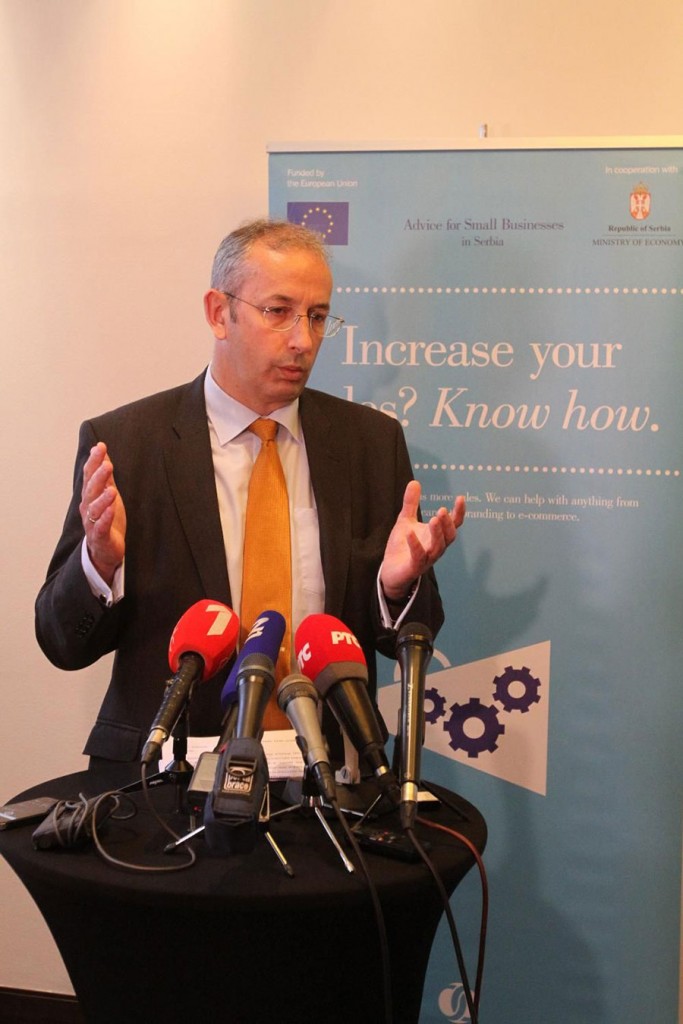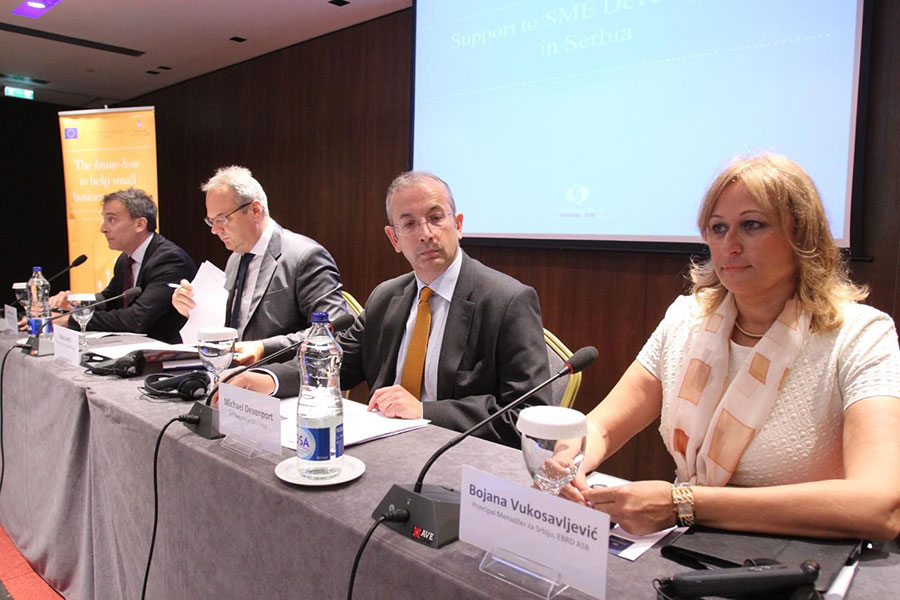240 SMEs in Serbia benefited directly from the project implemented by European Bank for Reconstructon and Development (EBRD) with the financial support from the EU, stated the conference presenting the results of “Support to SME development in Serbia” Programme. The Programme supporting SMEs ran from from 2013-2016 and was funded through Instrument for pre-accession assistance.
Head of the EU Delegation to Serbia Michael Davenport said the support was “tailor made” to fit each company and focused on resolving possible operating issues.
”Private sector is key for development and this project is an excellent example of the potential of SMEs. We are very happy to see more than 200 companies enter new markets in Europe and beyond thanks to our support. In recent years, the European Union has invested EUR11.5 million in project of this kind. This is part of a larger EU package assistance worth nearly EUR80 million of grants aimed at development of Serbian economy and capacity building within private sector. I believe EU support in this areas will significantly improve the level of competitiveness among Serbian companies,” said EU Ambassador.
 Davenport described EU economic recommendations and positive assessment regarding fiscal consolidation as strong support for economic reform implemented by Serbian government.
Davenport described EU economic recommendations and positive assessment regarding fiscal consolidation as strong support for economic reform implemented by Serbian government.
“We are ready to support Serbian government in its effort to continue the reform,” Davenport said.
EBRD Director in Serbia Daniel Berg said strengthening of entrepreneurial spirit and long-term support to small businesses could help Serbia and the region.
Speaking of the issue of bad loans, Berg said the EBRD was ready to assist the Ministry of Finance: funds have been secured to conduct the study whereas public consultation with stakeholders – banks, law firms and various funds – is ongoing.
“We will hold another conference on this topic in the second half of 2016. We have recently allocated money for a fund in Greece which bought out these loans and we stand ready to fund similar portfolio or individual cases in Serbia as well,” Borg said.
Project Manager in Serbia Bojana Vukosavljevic said the Programme supporting SMEs ran from 2013-2016 and was funded through Instrument for pre-accession assistance with EUR3.5 million. Vukosavljevic also said financial and advisory support within the Programme reached 240 SMEs.
Minister of Economy Zeljko Sertic said there was no alternative to Serbia’s EU accession process because Serbia conducted 65 per cent of its total trade exchange with EU countries and pointed out the economy would be given utmost priority in Prime Minister-designate exposé.
According to him, preliminary data about the business operation of 37 state-owned enterprises shows that these enterprises have reduced their losses from RSD67 billion in 2014 to three billion in 2015.
He also added that according to preliminary data, in 2015 Serbian economy reported a positive net result of RSD143.8 billion.




